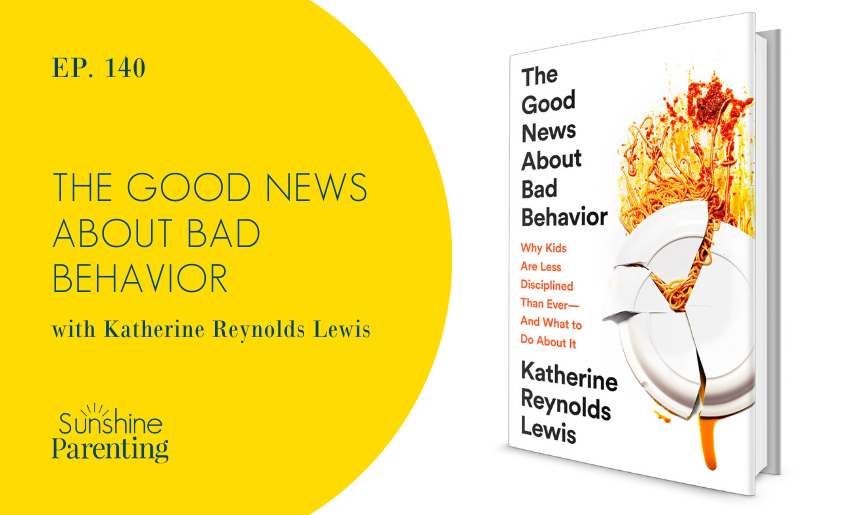
Link to show notes for this episode.
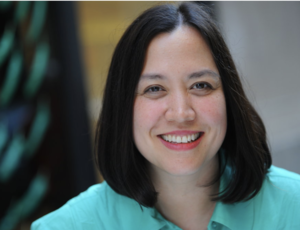 Katherine Reynolds Lewis is an independent journalist, author and speaker based in the Washington D.C. area on topics including parenting, children, education, mental health, technology, work, entrepreneurship, caregiving, diversity, equity and inclusion. Her award-winning book, The Good News About Bad Behavior (PublicAffairs, April 2018), explains why modern kids are so undisciplined and tells the stories of innovators who are rebuilding lost self-regulation, resolving family conflict and changing the trajectory of young lives. Based on the most-read article ever published by Mother Jones, the book documents a new model of discipline for a generation of children who are out of control. Katherine is a certified parent educator with the Parent Encouragement Program in Kensington, Md.
Katherine Reynolds Lewis is an independent journalist, author and speaker based in the Washington D.C. area on topics including parenting, children, education, mental health, technology, work, entrepreneurship, caregiving, diversity, equity and inclusion. Her award-winning book, The Good News About Bad Behavior (PublicAffairs, April 2018), explains why modern kids are so undisciplined and tells the stories of innovators who are rebuilding lost self-regulation, resolving family conflict and changing the trajectory of young lives. Based on the most-read article ever published by Mother Jones, the book documents a new model of discipline for a generation of children who are out of control. Katherine is a certified parent educator with the Parent Encouragement Program in Kensington, Md.
Katherine contributes to The Atlantic, Experience Life, Medium, Parents, USA Today’s magazine group, the Washington Post and Working Mother magazine. Her byline has also appeared in Bloomberg Businessweek, Fortune, MSN Money, Money, the New York Times, Parade, Slate, and the Washington Post Magazine. She’s appeared on CNN, NPR, Bloomberg television and radio, and HuffPost Live, as well as many TV and radio programs nationally and internationally.
Big Ideas
Kids today really do behave differently than in previous generations.
It’s important to model to our kids how to calm down or stay in control when we are stressed so that they can learn what works best for them in their own situations.
Connecting with your child goes a long way.
Making mundane things fun by playing a game, timing it, or doing it in a different way are effective techniques worth trying with your kids.
It’s important to reframe the way we look at a child’s misbehavior.
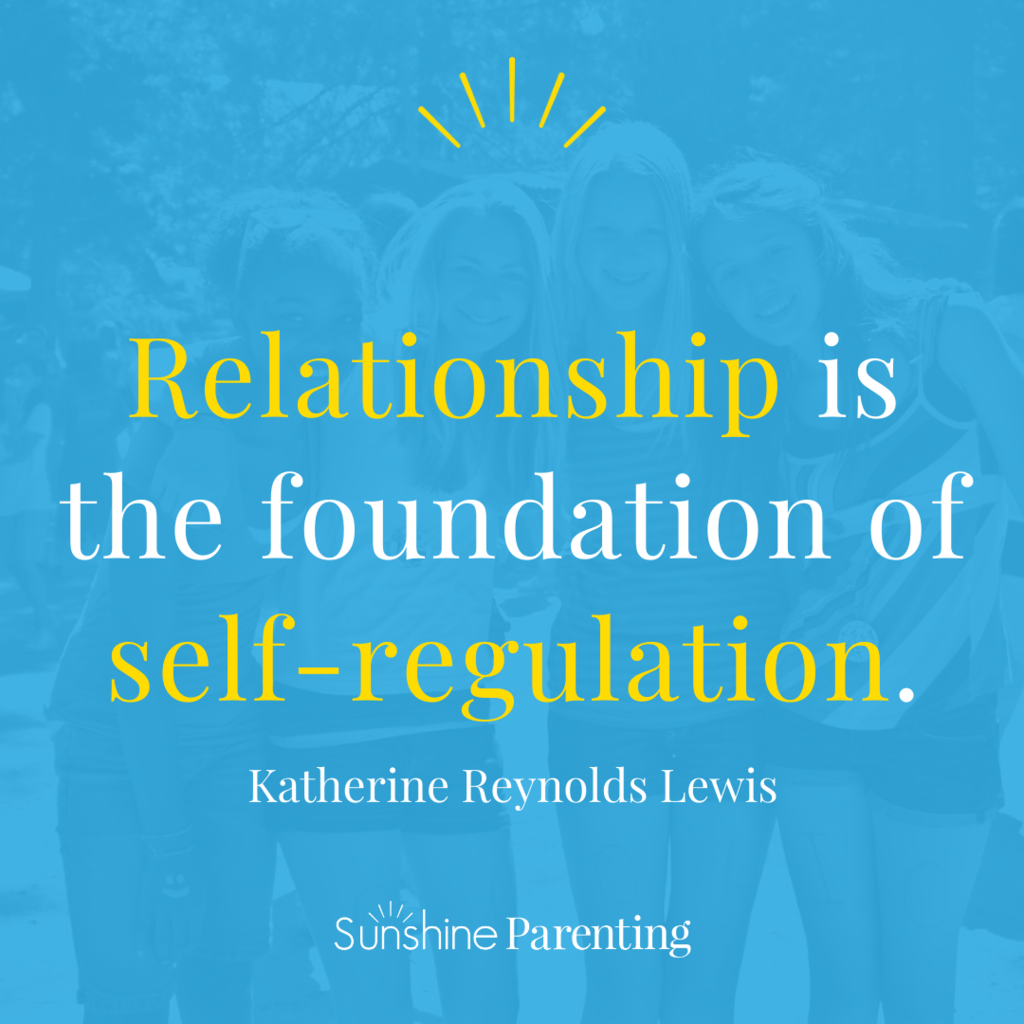
Quotes
Audrey: If we can’t show our kids how to appropriately handle difficult situations, that’s hard for them too.
Audrey: There are things that we can do to positively influence our kids by being more aware of our own triggers and how we can respond more effectively in different situations.
Katherine: And when you start modeling all of the many strategies there are for self-regulating, then your kids first of all see, Oh, it’s normal to feel disregulated many times during the day and to need to bring yourself back under control. And then they start thinking, Oh well what would, what would work for me?
Katherine: We always try to have this conversation of: I see you’re starting to get worked up. I’m noticing your face is getting a little flushed. What do you think would help? Right. And the more that we start turning it back to our kids so that they tune in to their own bodies and their own needs, then they’re going to find the solutions that work for them.
Audrey: So these behaviors that we see, a lot of it is just that they are not able to comply if they don’t have the skill yet.
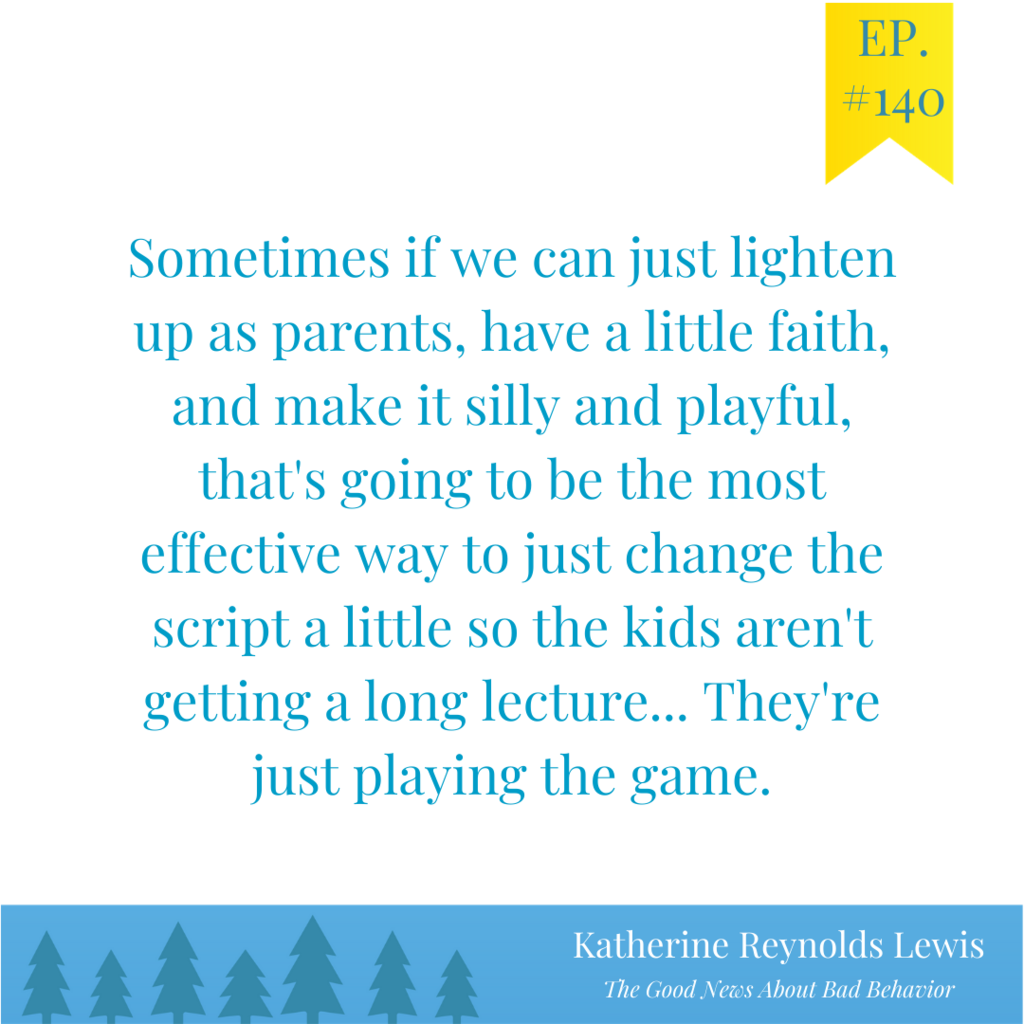 Katherine: The apprenticeship model is really viewing our kids as capable of growth and change.
Katherine: The apprenticeship model is really viewing our kids as capable of growth and change.
Katherine: Relationship is the foundation of self regulation.
Katherine: Even if it’s little by little by little, even if it’s two step forward, one step back, having that faith and vision that our kids are able to succeed, if we can have that vision for them, then they can start to believe it and inhabit it as well.
Katherine: The information you’re getting from your kids through their behavior is just data and it helps you to figure out, okay, what might be going on? How can we potentially find a better path, um, through this challenge.
Katherine: The apprenticeship model is these three Cs, connection, communication and capability building.
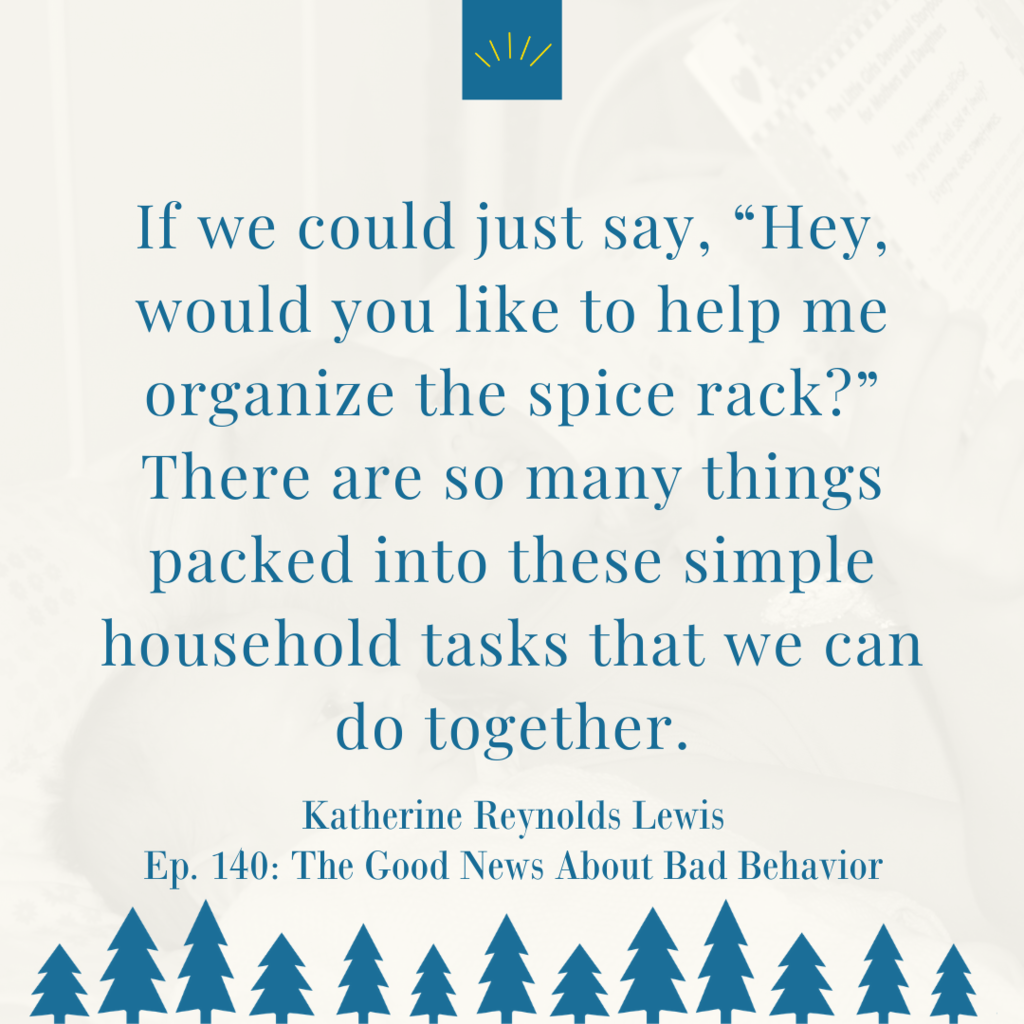
Katherine: I think so often parents are asking authors like us, “What do I do? What’s the technique that will make my kid be perfect? That will make them finally do what I, what they need to do in this situation.” But it really comes down to that relationship between you and your child. And I think that if you or I were in someone’s home, we still wouldn’t have all of the clues that the parent has to to really understand the dynamics and what might help and what might be the underlying issue.
Audrey: It’s fun for them. You’ve made it so that something that happens every day and is mundane suddenly is like appealing and kind of fun.
Katherine: Sometimes if we can just lighten up as parents, have a little faith, and make it silly and playful, that’s going to be the most effective way to just change the script a little bit so the kids aren’t getting a long lecture or they’re not earnestly sharing their feelings. They’re just playing the game.
Audrey: Sometimes it’s just a matter of using things that you already use with other relationships more in your parent child relationship.
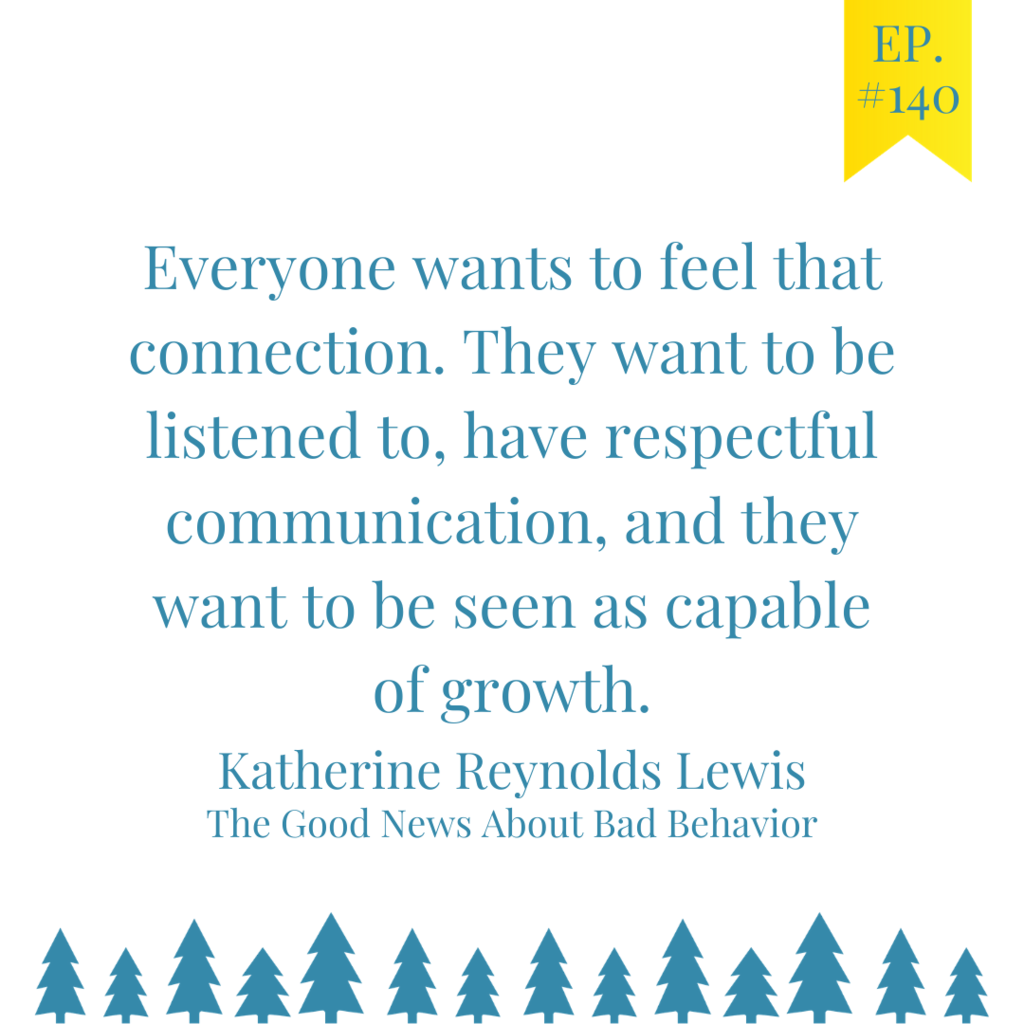
Katherine: Everyone wants to feel that connection. They want to be listened to, have respectful communication, and they want to be seen as capable of growth.
Audrey: I’m often talking to parents about that capability piece that actually making sure our kids know that they are valued and important contributors to our homes.
Katherine: If we can instead say, “Oh great, I’m going to take the extra 20 minutes to teach you how to sweep or spray a bottle to wash the windows or chop up vegetables for salad, then it feeds that sense of belonging that is the deepest human need to feel that we belong in our family and our community, whatever group we’re part of, that we’re needed and that we authentically contribute.
Audrey: It was neat to me to hear that the contribution goes beyond your home. And I think that’s sort of the ultimate goal.
Katherine: Instead of drilling our kids with flashcards or working on their times tables, if we could just say, “Hey, would you like to help me organize the spice rack?” That’s going to be just as important, if not more to their success. Plus it’s an activity we do together. They’re helping our home. There’s so many things packed into these simple household tasks that we can do together.
Resources and Links
Katherine Reynolds Lewis Website
Book: The Good News about Bad Behavior
Parent Encouragement Program in Kensington, Maryland
Viral Story for Mother Jones Magazine
Study Comparing Russian Kindergartners Today to Russian Kindergarteners 50 Years Ago
One Simple Thing

During this pandemic, a simple thing you can do to improve your own and others’ well-being is to lower your expectations and standards for yourself and everyone else. I talked about this in my interview on the Happier in Hollywood podcast.
I like the concept of the “Minimum Effective Dose” I learned from Dr. Christine Carter in her book, The Sweet Spot, and it seems especially helpful during this challenging time.
The “minimum effective dose” (MED) is considered to be the lowest dose of a pharmaceutical product that spurs a clinically significant change in health or well-being. In order to live and work from my sweet spot, I had to find the MED in everything in my life: sleep, meditation, blogging frequency, checking my email, school volunteering, homework help, date nights.
We have a deep-seated conviction that more work, more enrichment activities for the kids, more likes on Facebook or Instagram, more stuff would be better. Unless we like feeling exhausted and overwhelmed, we need to accept that more is not necessarily better and that our go-go-go culture, left unchecked, will push us not only beyond our MED — but beyond the “maximum tolerated dose,” the level at which an activity (or drug) becomes toxic and starts causing an adverse reaction.
-Christine Carter, Ph.D.
Want to listen to my conversations with Christine on the podcast?
Ep. 127: The New Adolescence with Christine Carter, Ph.D.
Ep. 41: Getting Comfortable with our Kids’ (and our own) Discomfort with Christine Carter
Ep. 1: Raising Happiness with Christine Carter
My Favorite
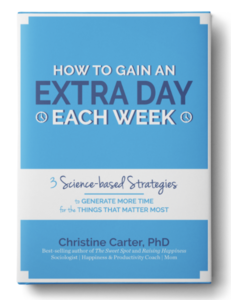 Download Christine’s free eBook, How to Gain an Extra Day Each Week: 3 Science-based Strategies to generate more time for the things things that matter most.
Download Christine’s free eBook, How to Gain an Extra Day Each Week: 3 Science-based Strategies to generate more time for the things things that matter most.
I especially like Step 1 in Tactic No. 1 (Upgrade Your Task List): Decide on your Top Five priorities. Not just at work, but in life. It’s really hard to narrow down priorities, but it’s an important first step in figuring out which tasks to prioritize.
When I read The Sweet Spot several years ago, I spent some time figuring out my priorities.
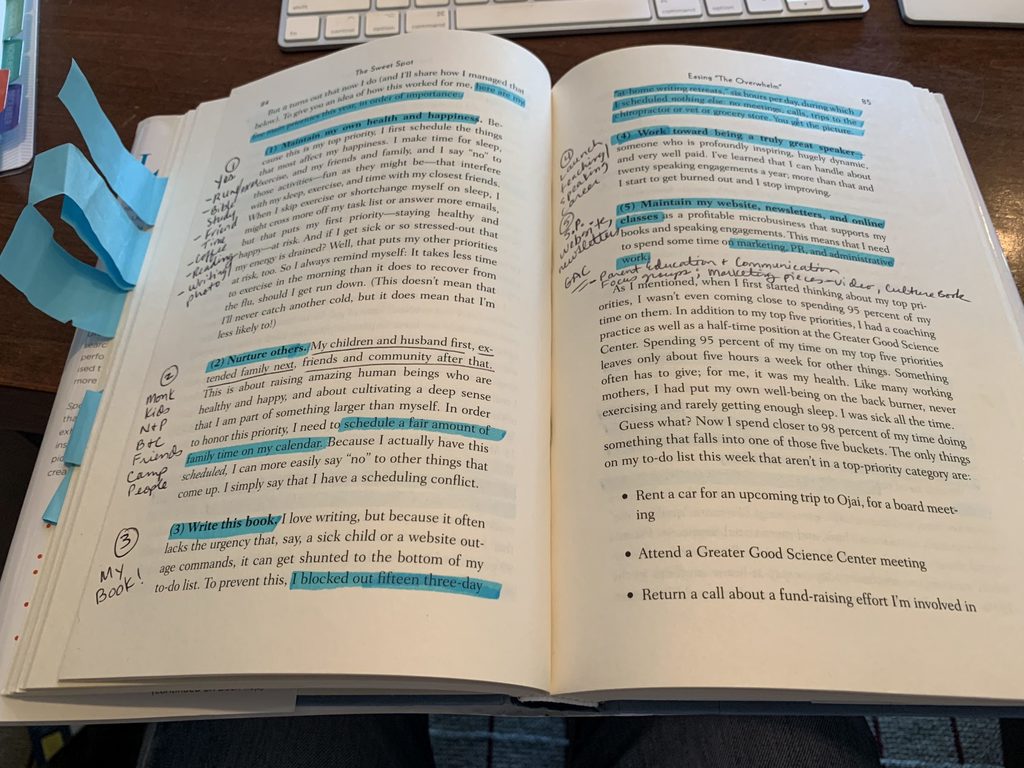 I pulled my copy out and saw that my number three priority was writing my book, which I only managed to do because I put it as one of five priorities.
I pulled my copy out and saw that my number three priority was writing my book, which I only managed to do because I put it as one of five priorities.
This pandemic has made it clear to me that I need to prioritize what’s most important to me. Christine’s book and advice helped me realize that having too many priorities scatters my attention and effort and makes me frustrated and less effective in the relationships and activities that I value most.
Listener Question
Hi! I am the in-school suspension lady at my school, and I need some kind of activities or lessons to teach my 5th through 8th graders when they get into a fight or defiance towards a teacher. Do you have any ideas?
Mary
• Connect, connect, connect! It’s challenging when we have so many kids to manage, but connecting with children and letting them know that they are loved and cared for despite their behavior is so important.
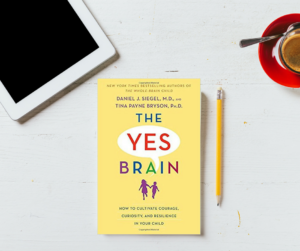 Instead of getting angry at the child for their behavior, look at them with curiosity. You can read more about why the child’s behavior is likely due to their neurobiology and a lack of appropriate coping skills. My favorite books and videos on this topic are from Dr. Dan Sieigel and Tina Payne Bryson, Ph.D., including their best-selling books, The Whole-Brain Child, No-Drama Discipline, The Yes Brain, & The Power of Showing Up
Instead of getting angry at the child for their behavior, look at them with curiosity. You can read more about why the child’s behavior is likely due to their neurobiology and a lack of appropriate coping skills. My favorite books and videos on this topic are from Dr. Dan Sieigel and Tina Payne Bryson, Ph.D., including their best-selling books, The Whole-Brain Child, No-Drama Discipline, The Yes Brain, & The Power of Showing Up
• Talk about calm down strategies when the child is in a calm state (not when they are agitated/ “in trouble”) so that they can start learning to self-regulate.
• Brainstorm what works for them. Empower the child to come up with their own ideas. For younger kids, you could have them make their own Conflict Resolution Wheel.
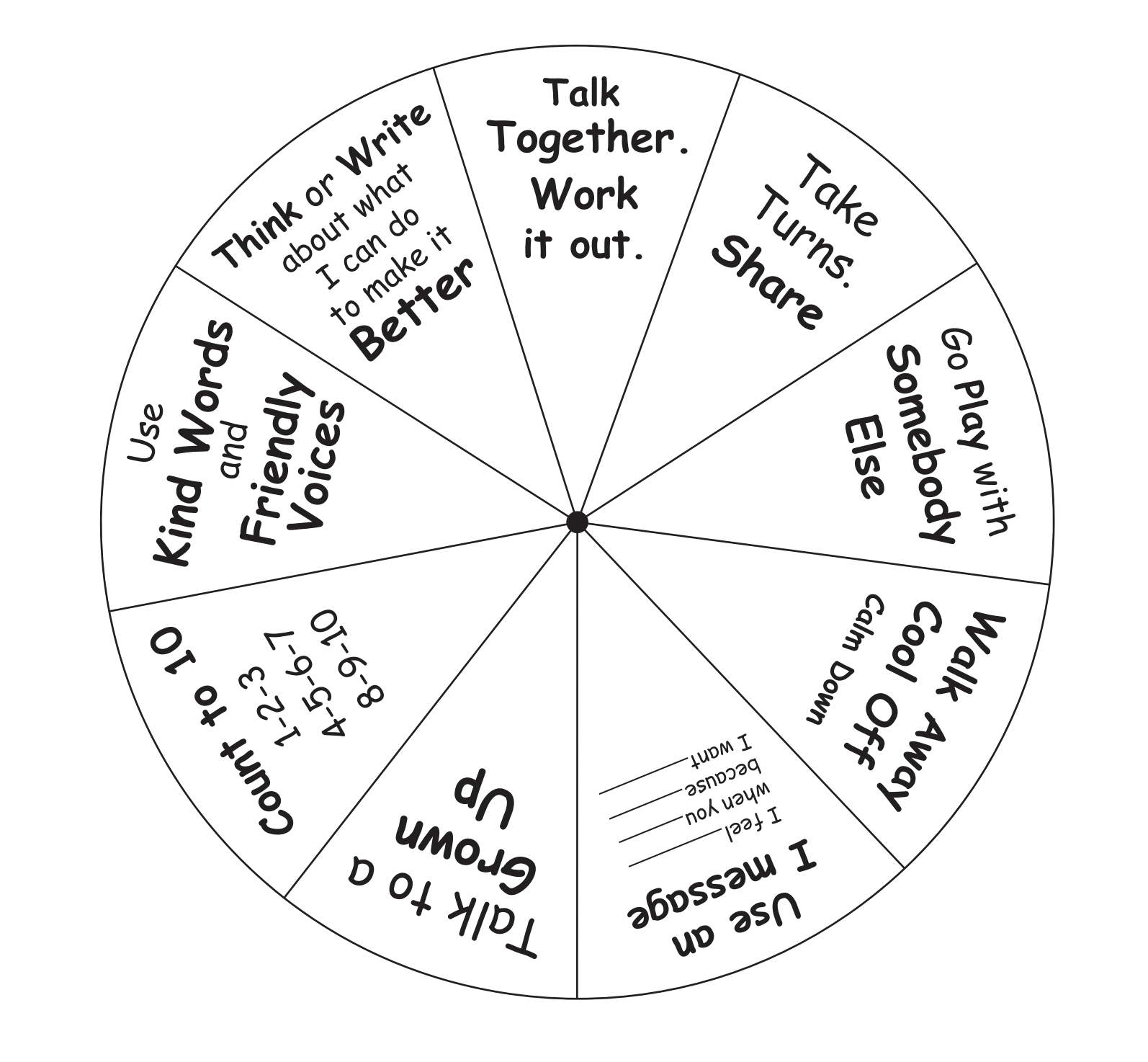
Conflict Resolution Wheel
Subscribe to updates and I'll send you the conflict wheel to print, cut out, and help children see some of the many different options for when they are in a conflict.
I write a lot about strategies for connecting with kids and forming close relationships, as well as how to flip the script on traditional, punitive discipline, in my book, Happy Campers. I invite you to download a free chapter (Secret #1: Connection Comes First) and see if my book could be another resource for you!
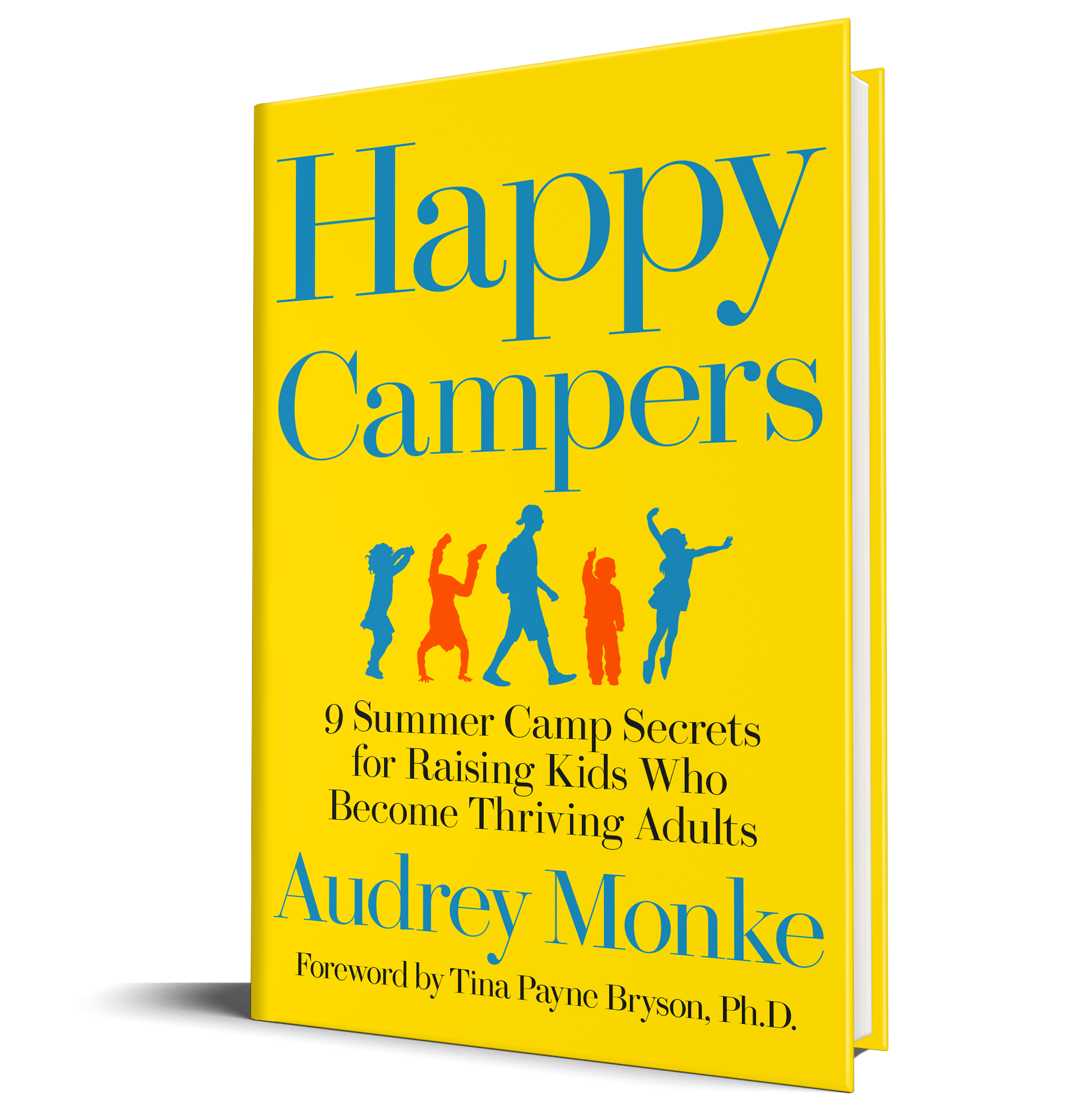
Secret #1: Connection Comes First
Subscribe to my email updates (podcast episodes, posts, & free resources), and I'll send you the first chapter of my book, HAPPY CAMPERS.
Video: Emotional Responsiveness with Tina Payne Bryson, Ph.D.
Ep. 95: Raising a “Yes Brain” Child with Tina Payne Bryson
Ep. 97: Parenting the Challenging Child
Ep. 110: Keep Calm & Parent On
